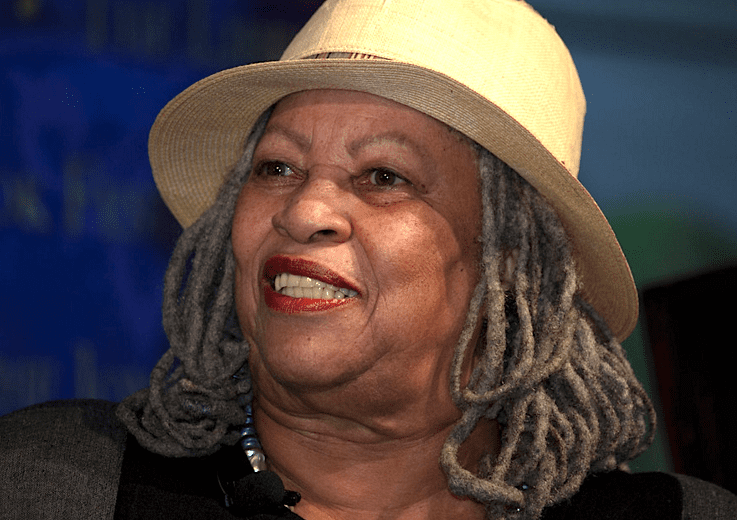The Freedom of Toni Morrison
By • August 7, 2019 0 1204

It was a dreary September day in Washington, D.C.
Authors and book lovers from around the country gathered for the 2011 National Book Festival. The list of presenters included Terry McMillian and Hoda Kotb.
I was honored to be among my fellow writers for the third time. What I was most excited about was the fact that Toni Morrison was on the program.
When we arrived at the authors’ tent on the National Mall, the line was longer to enter than in years past. I stood there without any frustration because I knew Toni Morrison was inside. All the authors that normally would skip breakfast under the tent were there for the same reason I was.
“Miss Morrison, I have waited a long time to meet you,” I said as I approached her. Then, I just listened.
She talked to all of us like we were her children. She smiled as if it really was not raining and the ground that we had to cross to get to the tent for her presentation was not really muddy. After we ate, I followed her as if she were Moses. And that is how I felt.
I stood behind the stage with joy as she made her way to her chair. Then, the magic happened. She spoke!
Her words were as calm as the river which she wrote about in her novel “Beloved.”
When I learned of her death on Aug. 6, I thought about that magical day and all that she meant to me as a writer and a black woman.
I remember how I felt when I was reading “The Bluest Eye” for the first time in college. I realized I had read the words of a literature genius. I wanted to know more about the writer who was born Chloe Wofford on Feb. 18, 1931, in Lorain, Ohio. I wanted to know more about the author, editor, teacher and, later, professor at Princeton University.
She was a black girl who had fulfilled the dreams I had in college. Long divorced from Harold Morrison, whom she met at Howard University, where she graduated in 1953, she went on to become the first black female editor at Random House. While still working as a editor, she wrote her first novel, “The Bluest Eye.”
It was “Song of Solomon” that made her a household name, when she won the National Book Critics Circle Award. In 1987, the world stood still when her novel “Beloved” won a Pulitzer Prize and the American Book Award.
I always felt that there was no award big enough for Toni Morrison. I felt her first love to be her two sons. We felt her sadness when one of her two sons, Slade, died of cancer. We felt her joy when she talked about her now only child, Harold.
There was nothing she did that I didn’t find interesting. Like authors of many generations and races, I followed her career as I carved my own. You didn’t have to know her to learn from her. Just pick up a novel and read her greatness. She wrote freely and without fear. She wanted other authors to know their worth and write with strong conviction.
She once said, “If there is a book that you want to read, but it hasn’t been written yet, you must be the one to write it.”
It was fitting that she received the Nobel Prize in Literature in 1993. In 2012, President Barack Obama presented her with the Presidential Medal of Freedom.
Freedom is what she stood for. Freedom is what she wrote about and fought for. Freedom is what she gave me and hundreds, if not thousands, of writers around the world: freedom to write and tell the story of forgotten people.
Farewell, Toni Morrison. Now, you are really free!
Shelia P. Moses is an author, a poet, a playwright and a producer. Her latest book is “The Last Mile, Conversations with Dick Gregory.” She is currently writing a play, “The Women of St. Louis.” Her novel, “South of Baltimore,” will be released in 2020.

